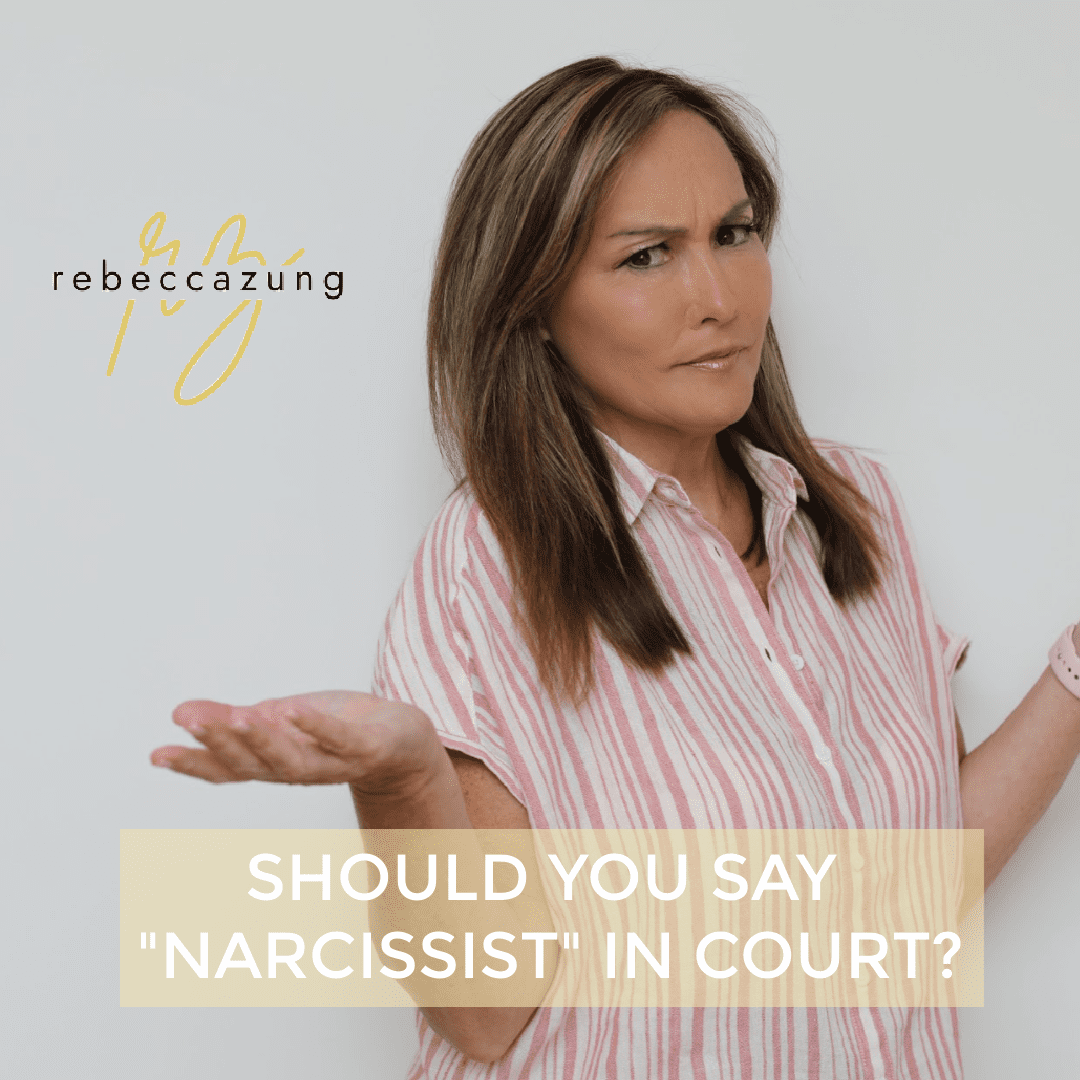
Lots of people wonder whether or not they should use the word “narcissist” in court. The answer is usually no. More often than not, you will want to use the information and evidence that you have to show the judge that the person you are negotiating with is not a good person and has narcissistic characteristics.
There are hundreds of cases of new divorce cases filed every single day and there are only a specified number of family law judges in each jurisdiction. This means that most judges probably have hundreds of new cases on their docket at a given time. This average doesn’t even include the plethora of modification actions that are made that judges have to address in addition to the many other situations that might need a judge’s attention. So, each judge is dealing with hundreds if not thousands of cases in a given period of time. Most judges are overwhelmed and often backed up because they have way too much on their docket. Judges are also evaluated by the judicial system, voters, or whomever appointed them. They are evaluated on everything from how quickly they get cases off their docket to how often their verdicts get appealed.
For those of you who have children, you have probably seen your kids fighting and ultimately playing the “he said/she said” game to place blame or get the other in trouble. Your first reaction is probably just to tell them to stop arguing and to get along. The judge is to you as you and the narcissist in your life are to the children. If a judge sees two individuals fighting, pointing fingers, and calling names in court- their reaction will be very similar to yours when you witnessed your children fighting. They don’t want to deal with the seemingly childish behavior and complaints that they see literally every day. Judges just want to get cases off their docket.
Remember that judges are people too. Although their job is to apply the law, they have biases and opinions. Underneath the black robes, they ultimately decide whether to believe someone or not. You get a very short window of time to present your case and to portray who you are to the judge. You must use this time strategically.
Some people will come to me and say that they have 50 witnesses that are willing to attest to an individual’s poor behavior. Although this might sound good, you have to remember what is realistic in terms of presenting your case in court. You have to have time on a judge’s docket in order to present 50 witnesses and that time translates into attorney’s fees and the time it will take for the other side to depose each of the witnesses.
The best way to go about portraying someone’s narcissistic characteristics in front of a court is to portray evidence that references something that a judge will actually care about such as custody. In a custody battle, judges are obligated to come up with what is in the best interest of the children. They will ask questions to figure out what that is:
What is going to be the best parenting plan?
What is going to be the best custody arrangement?
Has each parent encouraged a relationship between the children and the other parent?
Has each parent been respectful to the other parent?
Wherever you are in the world, there is going to be some sort of law that a judge goes by in order to decide what is best for the children. Take a look at the laws in your jurisdiction and present evidence in light of those laws.
If you want to say that an individual is a narcissist, you are really going to want to do so in the context of either a psychological or custody evaluation. Depending on the results of the evaluation, a psychological professional or mental health professional could say affirmatively that a parent has narcissistic personality disorder and is unfit to have sole custody. The results would come in a 30 or 40 page report with tons of information and supporting documentation that a judge would not be able to overlook. and it’s going to have tons and tons of information and supporting documentation as to how that mental health professional came up with that diagnosis of that person.














